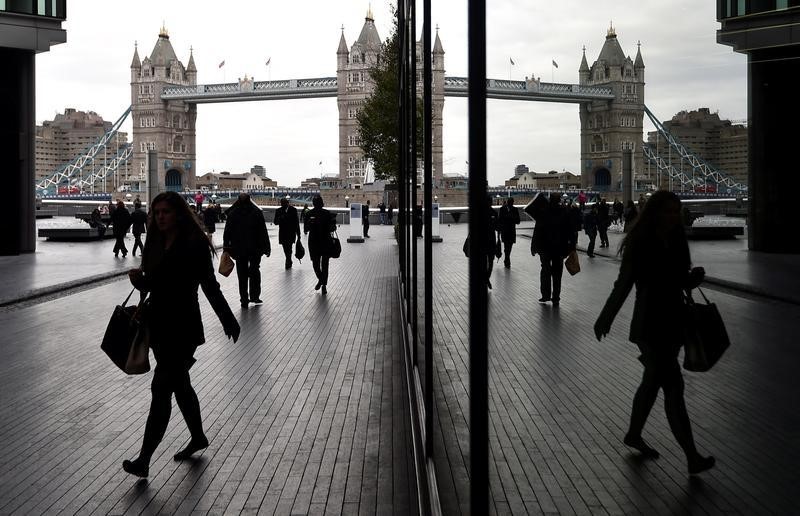By Estelle Shirbon
LONDON (Reuters) - Business was booming for Berwin Leighton Paisner before Brexit. The 84-year-old City of London law firm banked its second-highest ever profit per equity partner in the financial year that ended in April.
But in the wake of Britain's vote to leave the European Union, BLP has frozen pay and bonuses until November. In an email to staff, its managing partner Lisa Mayhew said the reason was "political and financial uncertainty in the UK following the recent vote to leave the EU".
BLP is particularly exposed because it specialises in commercial real estate, one of the worst-hit sectors.
In some other areas of the law, such as insolvency, distressed mergers and acquisitions or financial restructuring, the fallout from the Brexit vote is likely to produce a short-term flurry of activity.
Bank bosses have warned that Brexit represents a threat to London's role as a global financial hub and major trading centre for the euro, and some financial institutions may reorganise their business models and move jobs from London to Europe.
That would generate business for lawyers in the capital's City of London financial district, said Simon Gleeson, a banking and finance partner at Clifford Chance, one of five major London firms often called the "magic circle".
"Brexit disrupts the entire legal basis of the City, and my God that's going to require a lot of lawyers to sort out," he said.
Long term, however, London's legal industry expects any gains to turn into pain as the volume of transactions falls.
"There is clearly a body of work there, but in volume terms it wouldn't equate with a normal transaction market," said David Crook, a mergers and acquisitions partner in the London office of major U.S.-headquartered firm White & Case.
Generating some 23 billion pounds annually, or 1.6 percent of GDP, legal services are one of Britain's most successful industries, with the City of London providing a large and lucrative chunk of the top firms' workload.
A study by consultancy Oxford Economics, commissioned by professional body the Law Society before the referendum, found that the negative effects of Brexit on Britain's legal services would be greater than for the economy as a whole.
It modelled three scenarios of how Brexit might play out. Under the worst-case scenario, the contribution of the legal sector to the economy was forecast to drop by 4 percent by 2030, while the best-case scenario would see it drop by 0.5 percent.
DAWN RAIDS
Likely changes to British lawyers' status in Europe could also affect them, law firms say.
A major concern is that EU law affords legal privilege protection - which means that legal advice is confidential and does not have to be disclosed to authorities or to opponents in a legal dispute - only to lawyers registered in a member state.
That would rule out British-registered lawyers after Brexit, an acute worry for those in the field of competition law because the European Commission has extensive enforcement powers that allow its inspectors to demand or seize documents.
"They can dawn-raid businesses and demand the production of documents in cartel cases, for example," said Philipp Girardet, a London-based competition partner at King & Wood Mallesons.
"That's a particularly sensitive area of enforcement and we want to make sure that our legal advice is always fully protected from disclosure under EU law," he said.
Like many others in the field, Girardet is in the process of registering in EU member Ireland, a relatively straightforward process due to similarities between English and Irish law.
The Law Society of Ireland said that since the referendum result had been announced on June 24, it had received about 30 initial queries a day about registration from British lawyers.
Since the start of the year, about 200 of them had completed the process, four times as many as had done so in the same period last year.
Gleeson at Clifford Chance said the big London firms benefited hugely from having offices and clients across the EU and from helping non-EU clients there. In the financial year 2015-2016, his firm made 35 percent of its 1.39 billion pounds in revenues in the UK and 33 percent in continental Europe.

"Historically the English firms have said 'come to us and we'll sort you out across the whole of Europe'," said Gleeson. "That becomes a lot more difficult with the UK outside the EU."